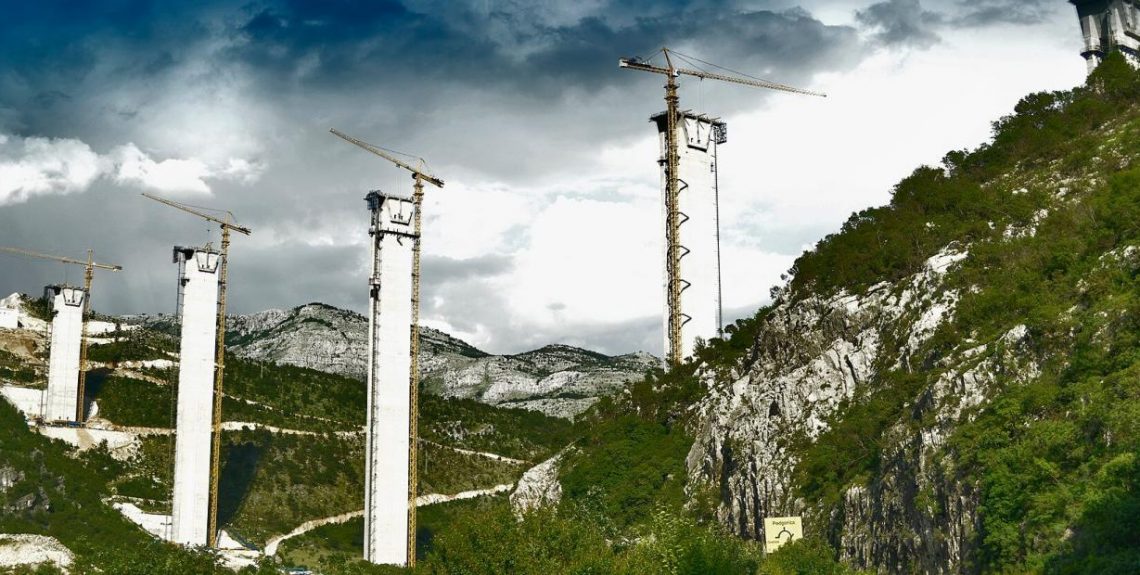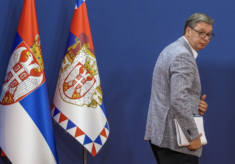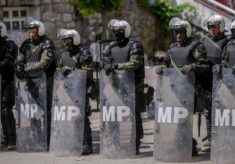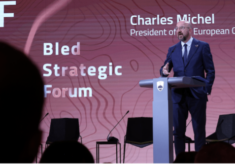Montenegro has been struggling to contain the public debt throughout the years, but recently its level has become unsustainable, reaching 103% of GDP. The surge originates from a loan agreement between the previous Montenegrin government and Exim Bank, the major Chinese lender, to build the 41 km section of a highway connecting the strategic Adriatic port of Bar to the border with Serbia.
Despite being branded as largely unfavourable by experts, the contract, worth around 950 million dollars with a 2% annual interest, was approved by the Montenegrin government, dominated by Milo Djukanovic’s Democratic Party of Socialists. As expected, it has become a big burden for the tiny post-Yugoslav nation, that gained independence from Serbia in May 2006. The first payment of the loan is due to expire in July. If paid, the public debt will go up, jeopardizing the already fragile macroeconomic scenario. If unpaid, China will assume control over some of Montenegro’s lands, as stated by the contract.
The new Montenegrin civic-oriented coalition, that came to power after the August 2020 parliamentary elections, keeping the DPS in opposition for the first time since 1991, asked the EU for a loan to reduce Podgorica’s financial and geopolitical dependence on China. Brussels rejected the plea, saying that while it is committed to enhance democracy and economic growth in Montenegro, it cannot repay loans taken from third countries.
Brussels’ stance is legally logical. The EU has repeatedly discouraged countries of the Western Balkans to enter financial agreements with China, whose conditions are opaque. Hence, the refusal to assist Montenegro is a warning to the whole region. The message is clear: relying on European lenders such the European Investment Bank (EIB) and the European Bank for Reconstruction and Development (EBRD) is the only right choice.
However, dealing with Montenegro’s rising debt would make sense for the EU. On the one hand, it would be helping the 27-nation bloc to counter the Chinese influence in the region. On the other hand, the current Montenegrin government promised to improve democracy and restore the rule of law, damaged under the DPS tenure, as several independent observers have noted over the years. Since the recently revised EU enlargement strategy is centred on the rule of law proper, helping Montenegro’s new Government – that has to face an unpleasant debt legacy – would have been coherent with this new approach.
Beside this, the EU has a lesson to learn from Montenegro’s debt saga, not the only story of China’s increasing influence in the region: other countries, for other objectives, have asked Beijing for financial support. The fact is that the pace of the enlargement process is too slow. Thirty years have passed since the breakup of Yugoslavia and the end of communism in Albania. So far, just Slovenia and Croatia have joined the EU. Other nations are stuck in a limbo, both for local leaders’ reluctance to promote democratic reforms and the EU “enlargement fatigue”. If the EU does not find a new momentum to timely integrate the region, Russian and Chinese room for manoeuvre will become much wider.
The EU has contributed a lot to foster stability in the Western Balkans over the last thirty years. Nevertheless a geopolitical Union should understand when support to local allies should override mere accountancy rules: Greece, left alone, was induced to lend two terminals in the port of Piraeus to Chinese companies, allowing a strong commercial foothold to the detriment of ports owned by Mediterranean EU members.

















